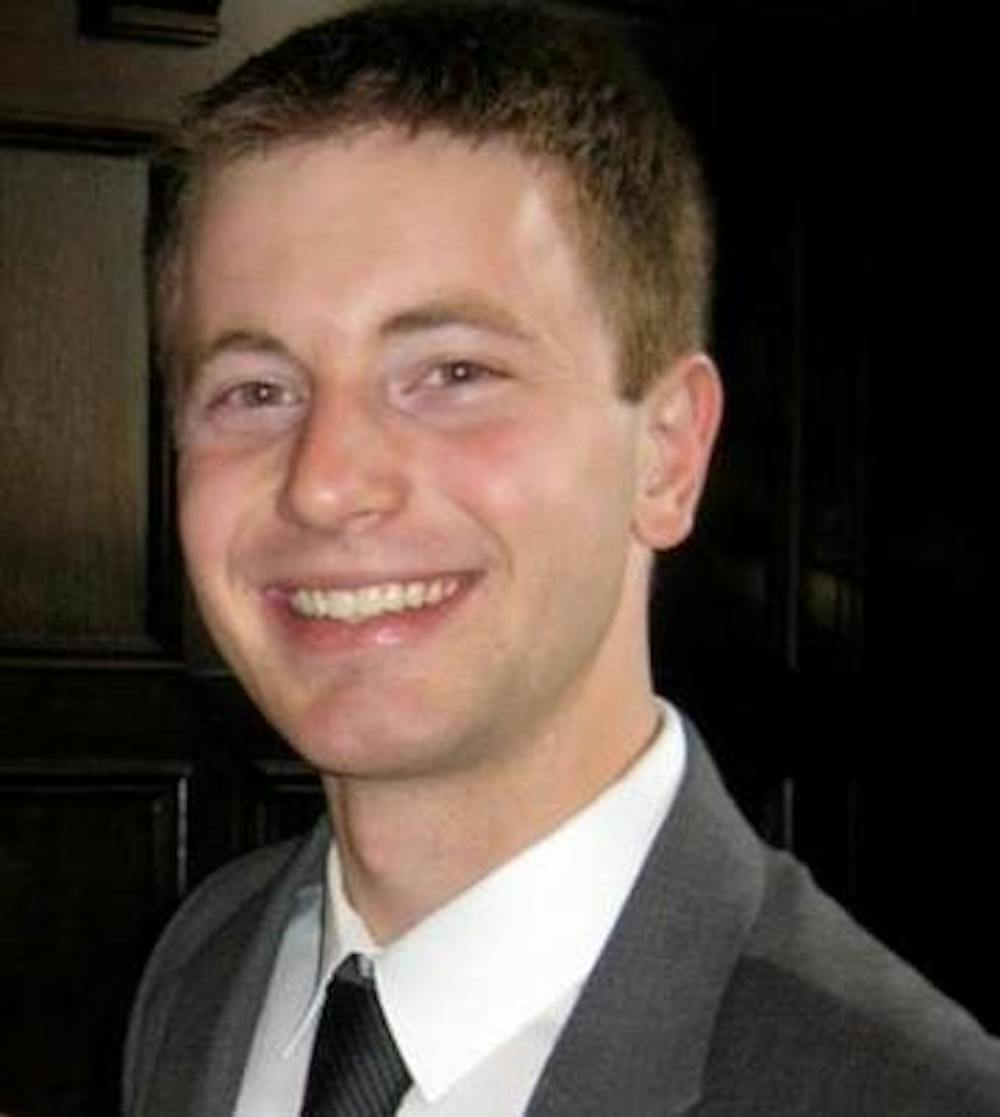Michael Pelehach has a tendency to take on ambitious and unexpected projects.
After working at the Target Corp. headquarters in Minneapolis for four years, Pelehach, Trinity ’10, realized that he did not find his work truly fulfilling. He quit his job and applied for a Fulbright Grant—a merit-based grant for international educational exchange for students, scholars and educators—to teach in Bulgaria. Since August 2014, he has been teaching English at the Peyo Yavorov language high school in Silistra, Bulgaria.
On March 30, Pelehach put a new plan to make a difference in motion when his 10th-grade class launched an initiative to raise $25,000 in 25 school days for the building of a school in Laos, Guatemala or Ghana.
“I noticed a sense of pessimism in my students and a lack of motivation,” Pelehach said. “I thought, ‘What better way to overcome this sense of not being able to do something big than by actually doing something big?’”
Pelehach’s class began their fundraising efforts by creating a crowd funding platform through Pencils of Promise—a nonprofit organization that builds schools and increases educational opportunities in the developing world—and making a YouTube video.
The lack of volunteerism and philanthropy in Bulgaria is alarming, Pelehach noted, explaining that his project was initially met with skepticism. Through the fundraising initiative, he said he wanted to teach his students that they should show compassion and concern for people struggling around the world, despite living in the European Union’s poorest country themselves.
“I had to convince people in Bulgaria that this was something worth pursuing,” Pelehach said.
In addition to reaching a wide audience online, the class targeted the local community through charity bake sales and a talent show, which included a message from the mayor. The initiative raised $8,000 after one week and attracted interest from media outlets in the United States and Bulgaria, Pelehach said. With the campaign ending Friday, Pelehach's class has already exceeded its goal and raised more than $27,000 dollars.
Those still wanting to help the cause can donate through the campaign's page here.
One of Pelehach’s students who manages the initiative’s blog and Twitter feed, Kaloyan Mihalev, wrote in an email that the project is the best thing that has happened to him in awhile.
“I have never before felt like I could be a part of something this big that is going to make a difference in this world,” he wrote.
Through the initiative, Pelehach said he has been able to watch students change their opinions on what they think is possible.
Stephen Temple, Trinity ’11 and a friend of Pelehach’s from Duke who visited him in Bulgaria recently, noted in an email the value of Pelehach’s work, explaining that the project is much bigger than simply building a school.
“Raising $25,000 would be proving to the local Bulgarian community, and more importantly to his students themselves, that they really could make a positive difference in the world,” Temple wrote.
Pelehach said he hopes to use this project as a way to help empower the rest of the school and community.
He noted that his participation in the immersive service program DukeEngage in Peru—in which he installed stoves in the homes of more than 90 families—during his time as an undergraduate first taught him that he as an individual could make a difference in people’s lives. Pelehach said he has used the experience to challenge his students to learn this lesson earlier than he did.
Pelehach—who also served as President of Pi Kappa Phi Fraternity during his time at Duke—is a caring individual who has a knack for understanding different perspectives, said George Grody, visiting associate professor in markets and management studies and one of Pelehach's former professors. .
“These were the big things that made him successful at Duke and in the challenging environment he’s in now,” Grody said.
However, Pelehach added that the move to Bulgaria did include difficulties, such as the language barrier. He noted that teaching has allowed him to share American culture with his students, as well as gain knowledge about other cultures.
“I’ve definitely learned more from them than they have from me,” he said.
Pelehach said that he plans to attend graduate school next year and hopes to focus on nonprofits and social enterprises in his future work.
Get The Chronicle straight to your inbox
Signup for our weekly newsletter. Cancel at any time.

